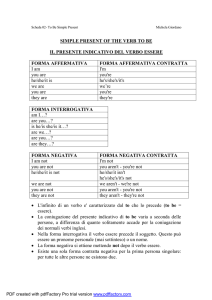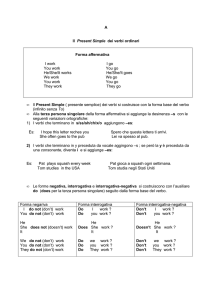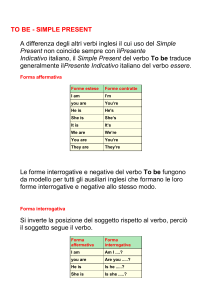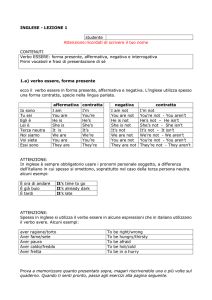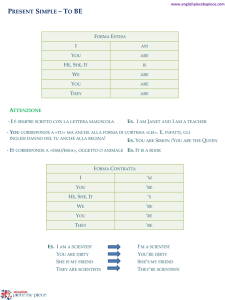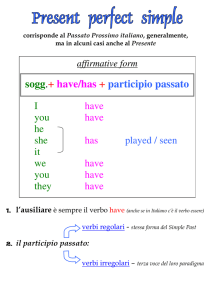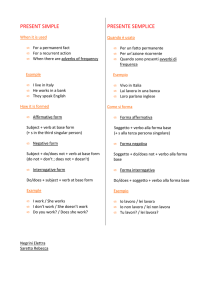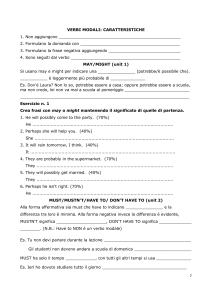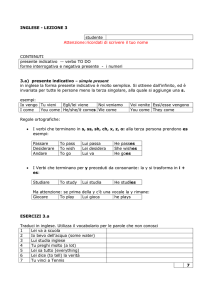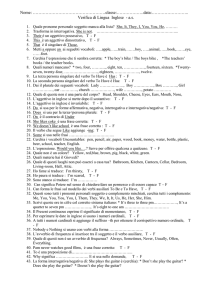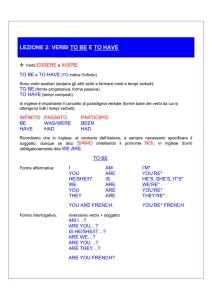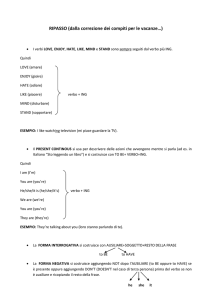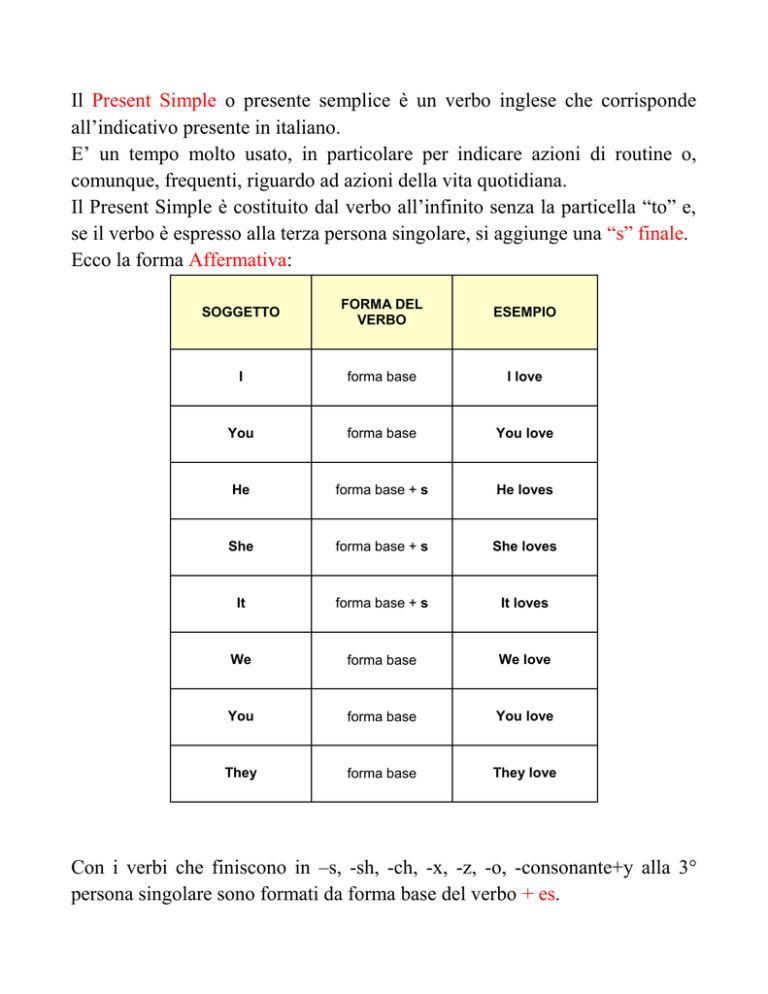
Il Present Simple o presente semplice è un verbo inglese che corrisponde
all’indicativo presente in italiano.
E’ un tempo molto usato, in particolare per indicare azioni di routine o,
comunque, frequenti, riguardo ad azioni della vita quotidiana.
Il Present Simple è costituito dal verbo all’infinito senza la particella “to” e,
se il verbo è espresso alla terza persona singolare, si aggiunge una “s” finale.
Ecco la forma Affermativa:
SOGGETTO
FORMA DEL
VERBO
ESEMPIO
I
forma base
I love
You
forma base
You love
He
forma base + s
He loves
She
forma base + s
She loves
It
forma base + s
It loves
We
forma base
We love
You
forma base
You love
They
forma base
They love
Con i verbi che finiscono in –s, -sh, -ch, -x, -z, -o, -consonante+y alla 3°
persona singolare sono formati da forma base del verbo + es.
La forma negativa si ottiene aggiungendo don't (doesn't per la 3° persona
singolare) prima della forma base del verbo.
La forma interrogativa si ottiene con l'ausiliare do (o does) +soggetto+verbo
in forma base+?.
To Be al Present Simple
Forma affermativa
Forma negativa
Forma interrogativo-negativa
Forma
interrogativa
Forma
intera
Forma
contratta
Forma
intera
Forma
contratta
Forma
intera
Forma
contratta
I am
I'm
I am not
I'm not
Am I?
Am I not?
Aren't I?
You are
You're
You are not
You aren't
Are you?
Are you
not?
Aren't you?
He is
He's
He is not
He isn't
Is he?
Is he not?
Isn't he?
She is
She's
She is not
She isn't
Is she?
Is she not?
Isn't she?
It is
It's
It is not
It isn't
Is it?
Is it not?
Isn't it?
We are
We're
We are not
We aren't
Are we?
Are we not?
Aren't we?
You are
You're
You are not
You aren't
Are you?
Are you
not?
Aren't you?
They are
They're
They are
not
They aren't
Are they?
Are they
not?
Aren't they?
To Have al Present Simple
Forma affermativa
Forma negativa
Forma interrogativo-negativa
Forma
interrogativa
Forma
intera
Forma
contratta
Forma
intera
Forma
contratta
Forma intera
Forma
contratta
I have
I've
I have not
I haven't
Have I?
Have I not?
Haven't I?
You have
You've
You have
not
You haven't
Have you?
Have you
not?
Haven't you?
He has
He's
He has not
He hasn't
Has he?
Has he not?
Hasn't he?
She has
She's
She has not
She hasn't
Has she?
Has she not?
Hasn't she?
It has
It's
It has not
It hasn't
Has it?
Has it not?
Hasn't it?
We have
We've
We have
not
We haven't
Have we?
Have we not?
Haven't we?
You have
You've
You have
not
You haven't
Have you?
Have you
not?
Haven't you?
They have
They've
They have
not
They haven't
Have they?
Have they
not?
Haven't they?
To Do al Present Simple
Forma negativa
Forma affermativa
Forma interrogativo-negativa
Forma interrogativa
Forma intera
Forma contratta
Forma intera
Forma contratta
I do
I do not
I don't
Do I?
Do I not?
Don't I?
You do
You do not
You don't
Do you?
Do you not?
Don't you?
He does
He does not
He doesn't
Does he?
Does he not?
Doesn't he?
She does
She does not
She doesn't
Does she?
Does she not?
Doesn't she?
It does
It does not
It doesn't
Does it?
Does it not?
Doesn't it?
We do
We do not
We don't
Do we?
Do we not?
Don't we?
You do
You do not
You don't
Do you?
Do you not?
Don't you?
They do
They do not
They don't
Do they?
Do they not?
Don't they?

